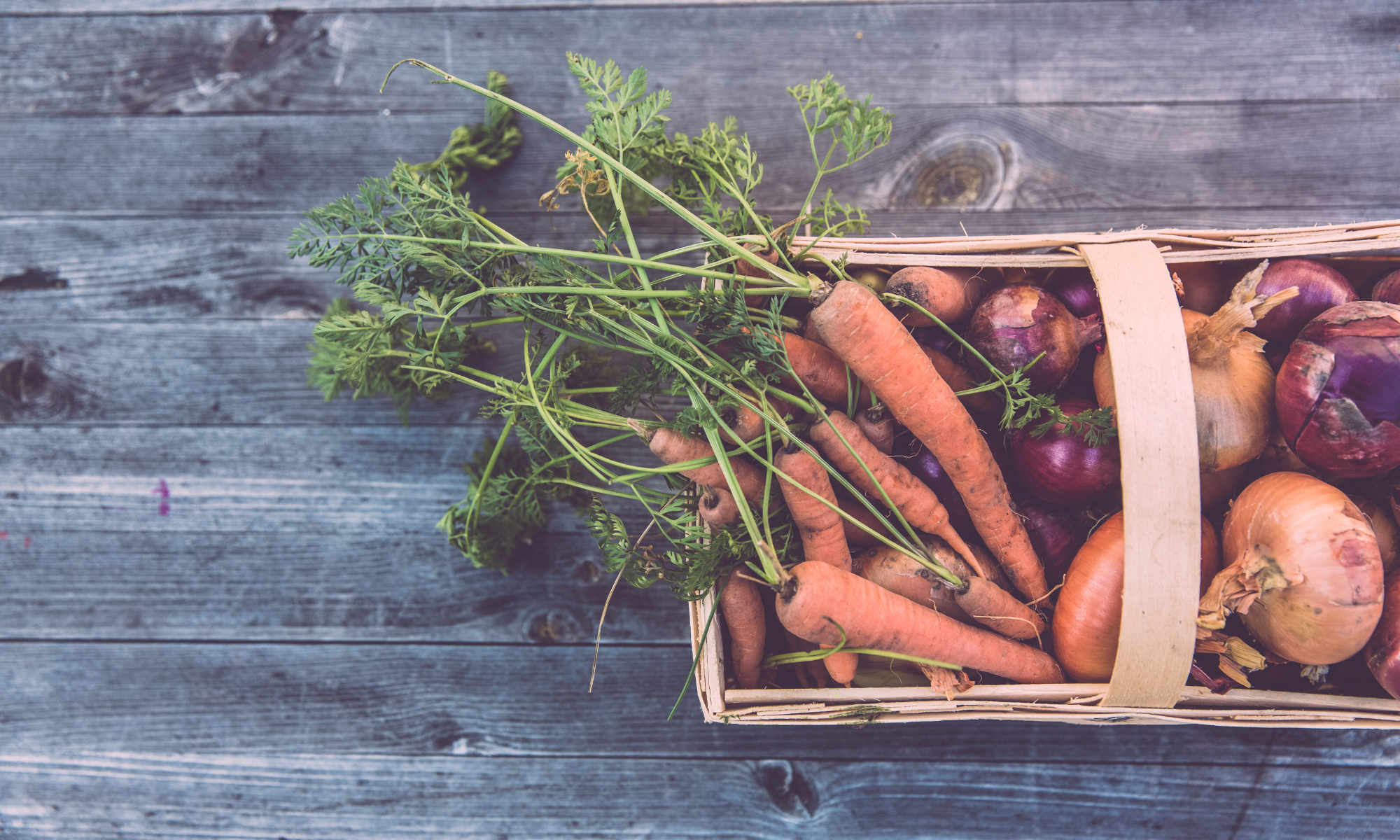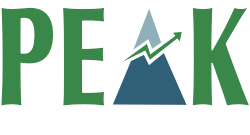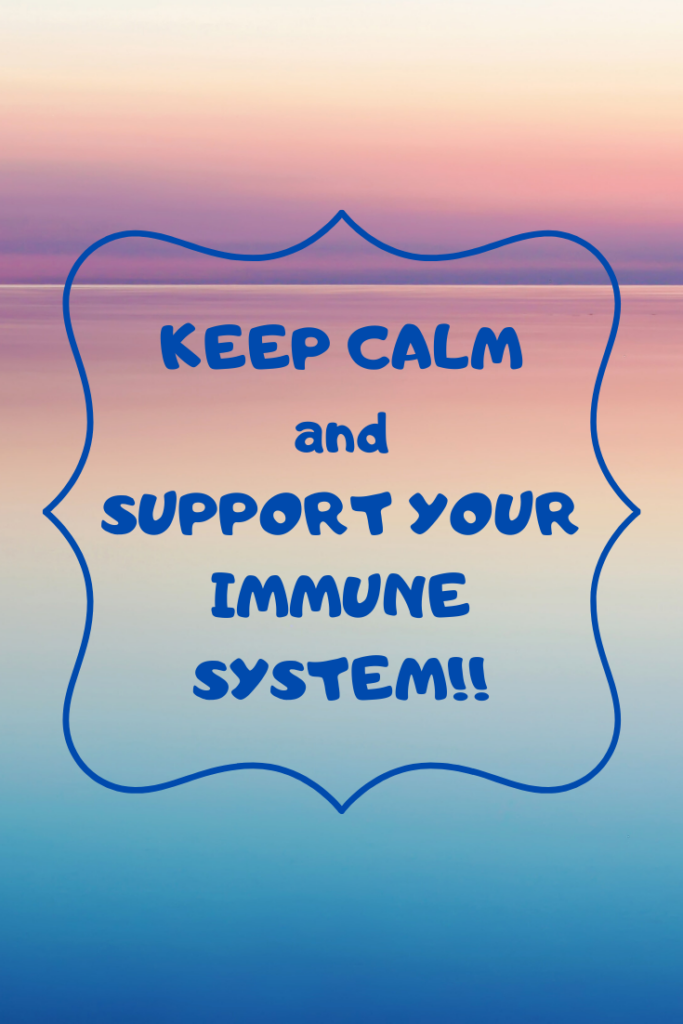One of the best things we can do to support our health is to ensure we are consuming enough clean water. Unfortunately, water is the single most common nutrient deficiency in the American population. How can this be? Well, in the land of Venti lattes and Super Big Gulps, we are often choosing to “quench” our thirst with beverages that not only make us lose more liquid than we obtain from drinking them, but are also addictive and keep us coming back for more. As someone who has a love-hate relationship with cold brew and unsweetened iced tea, I’m ALL too aware of how easy it is to fall into the “just one more cup” trap!
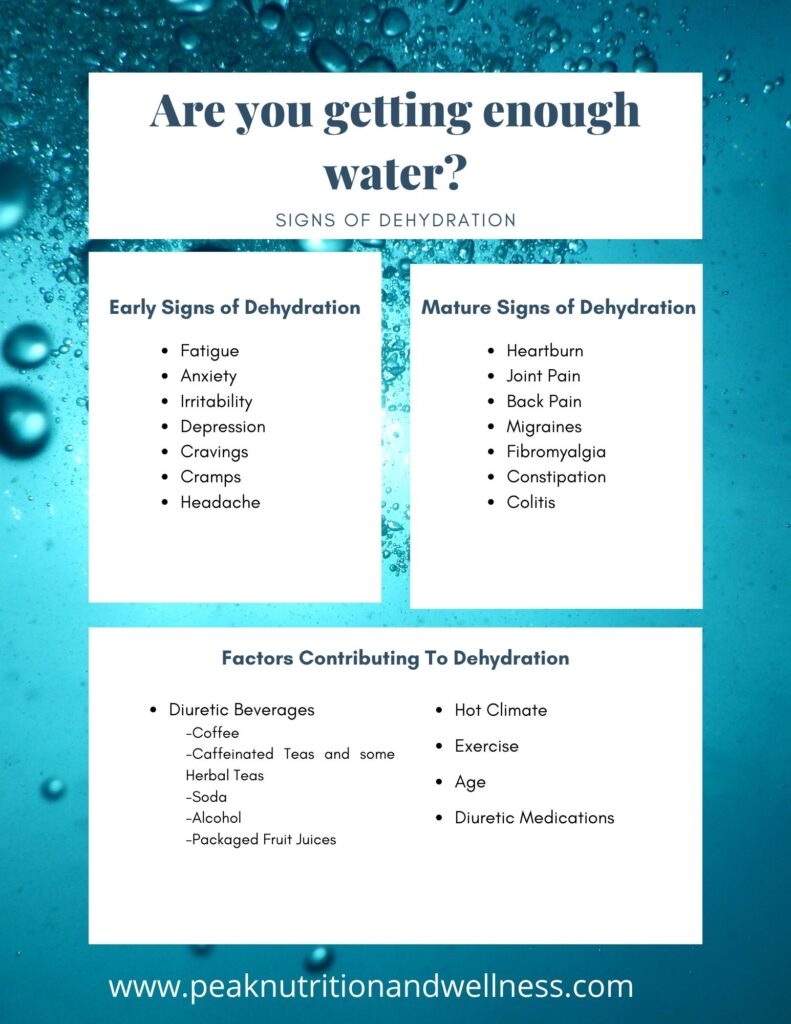
A person’s water consumption is not merely dictated by their preference for one beverage over the other. Age, race and socio-economic status have also been shown to play a role. Both children and older adults are more at risk for dehydration. Children are reliant on an adult to provide them with a source of good hydration and they have a larger surface area to body mass ratio. This allows more water to be lost to the environment through evaporation from the skin. Older adults have a reduced thirst signal, which means they do not recognize the body’s need for water as readily. Portions of the population that are of lower income and less educated also tend to have lower water consumption. One wonders why this would be, when water is arguably one of the least expensive beverages. Perhaps lack of access to good quality water plays a role. Most surprisingly to me is that teenagers who drink less water have also been found to eat less fruits and vegetables (themselves the best source of water in food), get less exercise and consume more fast food and soda. By under hydrating, they create a downward spiral, as they adopt habits that lead them further into dehydration!
Your hydration status is dependent on two factors – fluid intake and fluid loss. An imbalance between these two factors can have negative health consequences. It takes relatively little water loss to experience signs of dehydration. As little as 1 to 2% loss of body water can impair a person’s cognition. Most people don’t realize that even mild dehydration can cause changes in short term memory, visual acuity, mood, concentration and reaction time. These symptoms are alleviated when euhydration (normal body fluid levels) are met. Imagine the changes to people’s well being if they were properly hydrated!
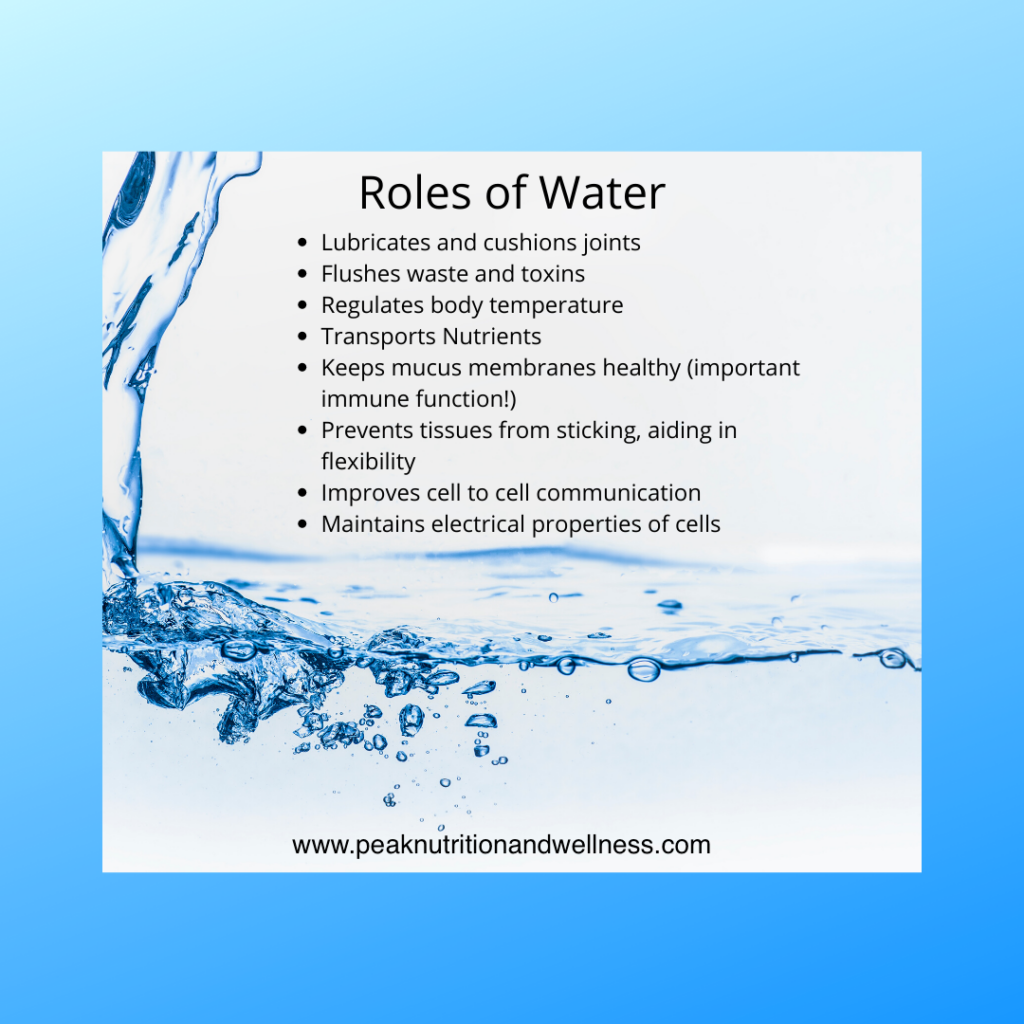
Water plays so many important functions in the body. From regulating body temperature to cushioning our joints to allowing the kidneys to filter and remove wastes by producing urine, our body cannot function without water. In fact, water is the nutrient that carries ALL other nutrients to the cells in our bodies – this is why we cannot go more than a few days without water. Our cells essentially starve! Water is also a necessary ingredient in the production of stomach acid. Without enough stomach acid, we can’t properly digest our food and absorb the nutrients our bodies need to function properly. Although the body does produce a small amount of water through its metabolic processes, the majority of the water we need must come from the foods and beverages we consume. Unlike camels, we cannot store water and must get an adequate amount daily. How much water your body needs will vary on a daily basis, depending on how much water you lose via sweat during exercise, how hot or humid the climate is and if you are ill. Ensuring you consume an adequate amount of clean water, eating lots of water rich vegetables and fruit and avoiding dehydrating beverages such as soda, coffee and alcohol are great steps toward making sure your body is well hydrated and preventing the serious consequences of chronic dehydration.
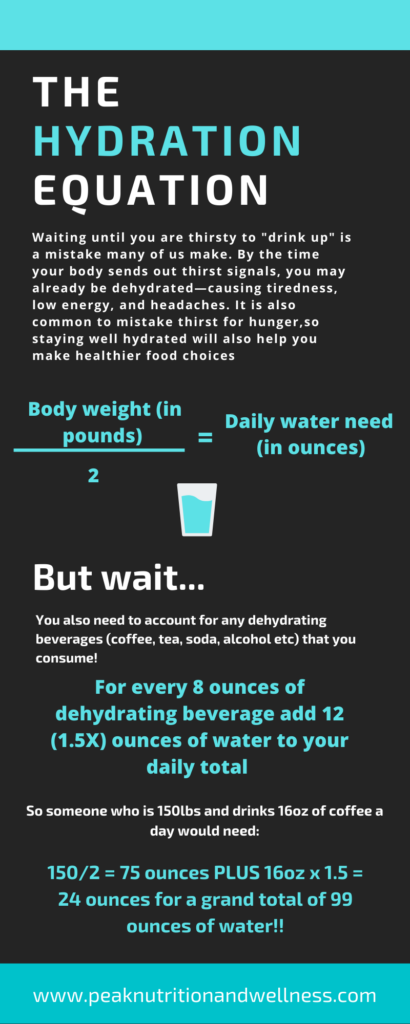
Calculate your water requirement! Are you meeting your body’s needs?
Though it’s very uncommon, it is possible to drink too much water. This can result a condition called water intoxication, where levels of sodium, potassium, and other electrolytes become diluted. Adding a pinch of quality, mineral rich sea salt to your water bottle can help ensure these electrolytes stay balanced and allows your body to utilize the water more effectively.
Certain medical conditions may make you more prone to water retention and you should discuss your hydration habits with your physician before increasing your daily intake.
These conditions include:
- congestive heart failure
- kidney disease
- uncontrolled diabetes
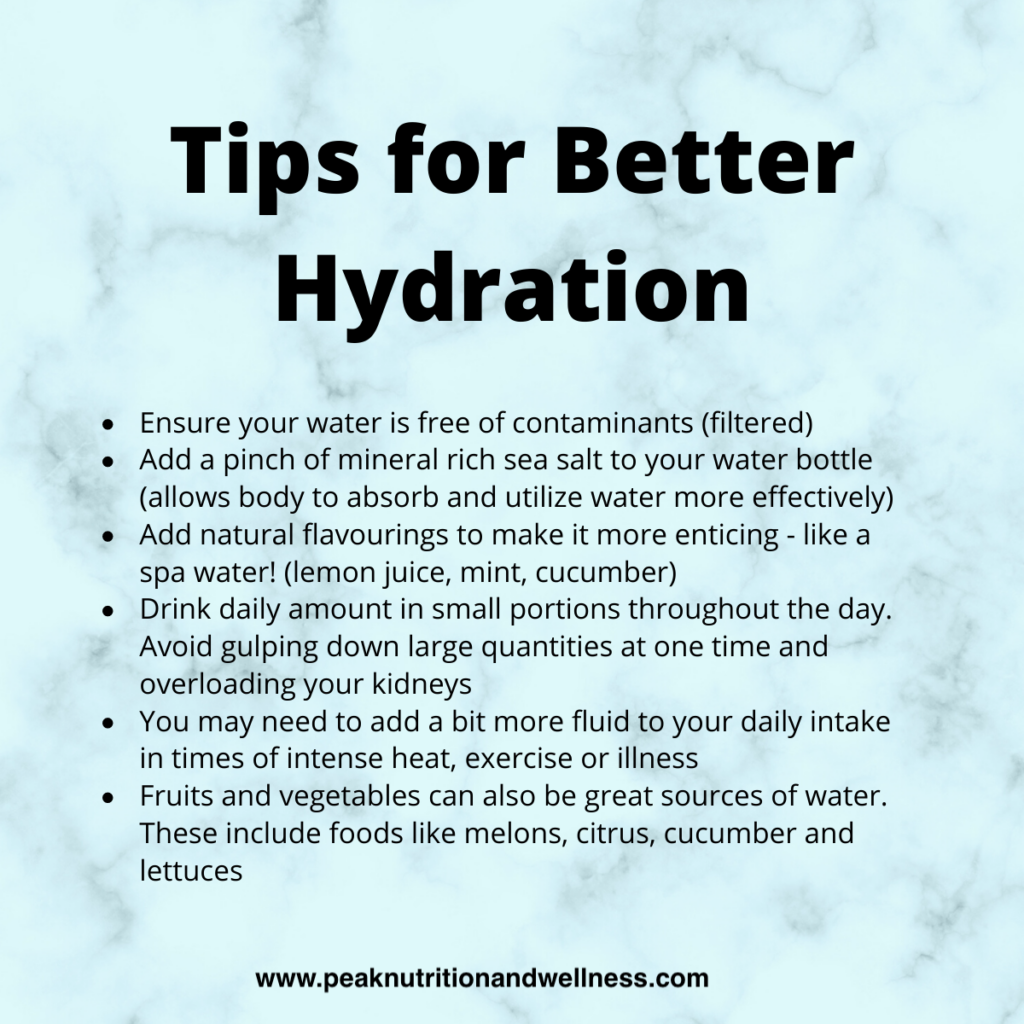
Changing a habit can be hard, especially if there are addictive substances like caffeine and sugar drawing you back to them again and again. Make a plan to increase your daily consumption by a cup or two daily. Try replacing one of your water depleting beverages with a “spa” water or non-diuretic herbal tea. Before you know it, your hydration game will be on point!
Until next time – Happy Hydrating!
